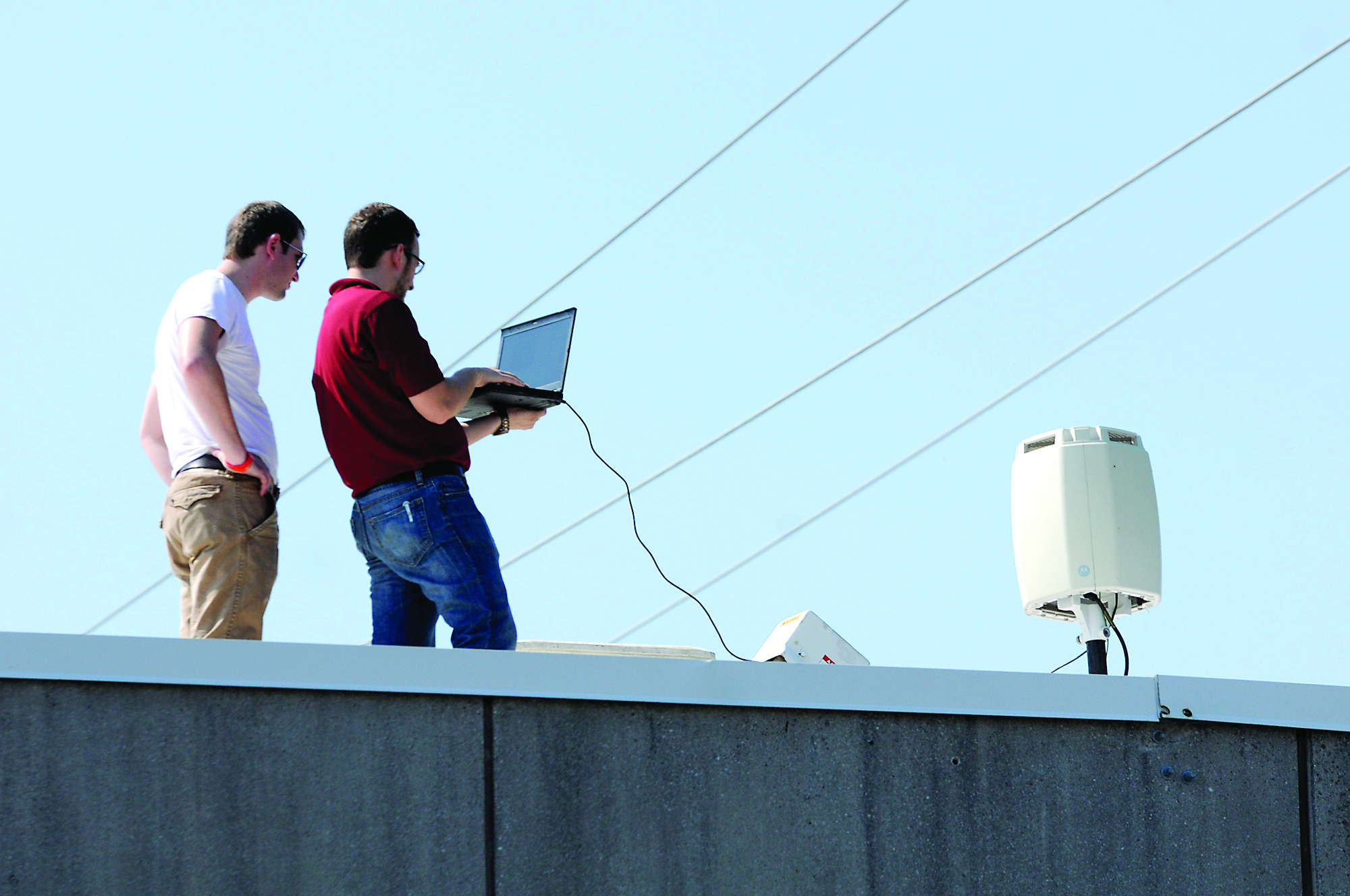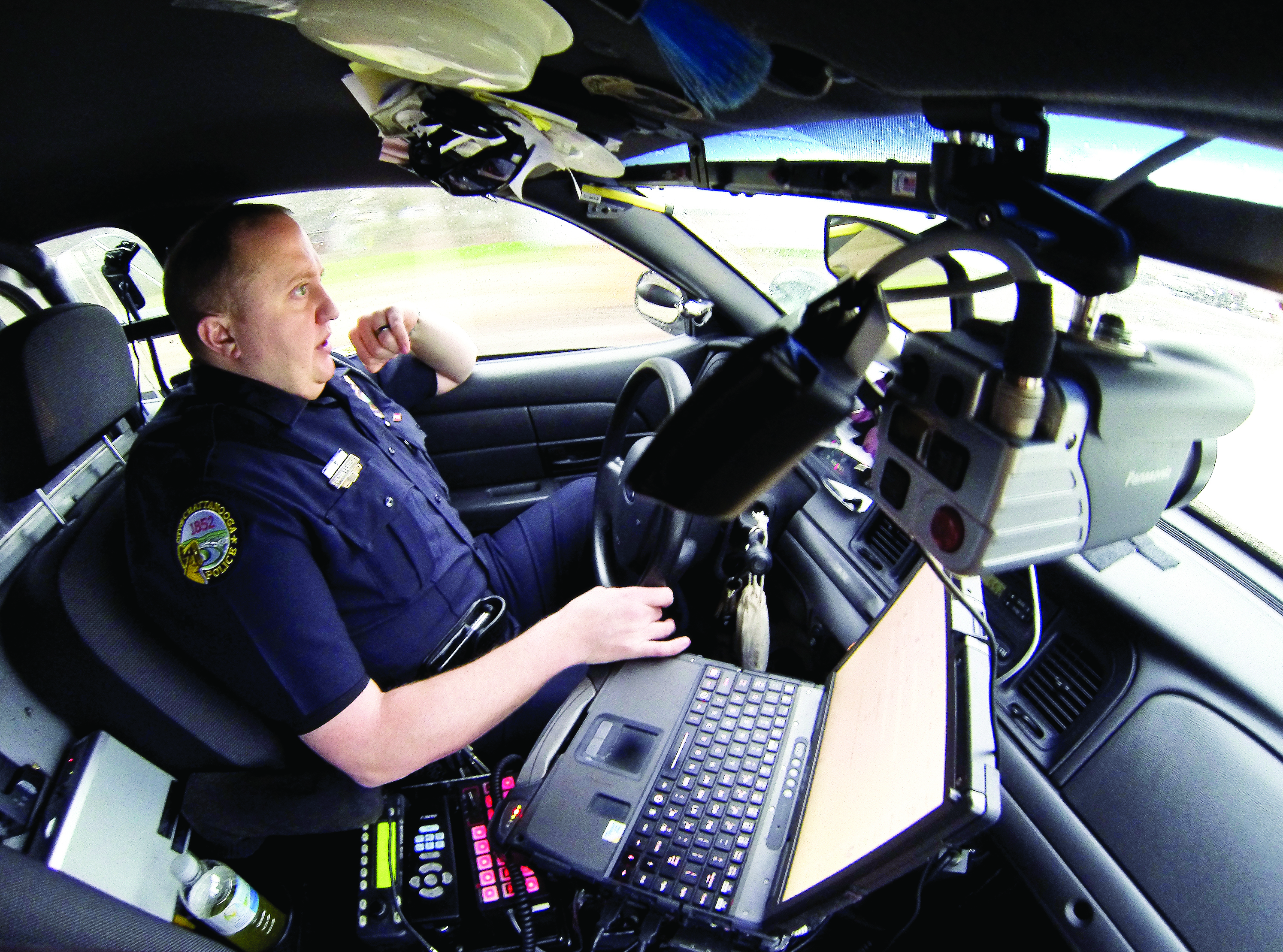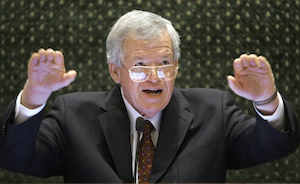VIDEO
This story is featured in today's TimesFreePress newscast.
BY THE NUMBERS Number of Wi-Fi access points: 580 Wirelessly-controlable lights: 4,500 Police cars capable of accessing Wi-Fi network: 312 Number of intersections with wirelessly-controlled stoplights: 115 Security cameras operating on network: 50
Chattanooga's citywide Wi-Fi network is still a few Krystals short of a sackful, even as taxpayers continue to pony up tens of millions of dollars for an Internet service that will remain exclusively available to local government.
Mayor Andy Berke says he wants to spend another $20 million on the wireless network to curtail congestion around the city's busiest intersections. But critics say that, after five years, the city is just throwing away good money on a muddled mishmash of pilot programs, and that the only thing the city will reduce is the amount of money it has left to spend on other priorities.
"I think it's a boondoggle," said City Councilman Larry Grohn. "It's a great idea, but my initial question is, are we getting our money's worth right now from what we've spent so far?"
It would be easier to answer that question if officials knew how much the city has invested so far.
The mayor's staff was unable to detail the total cost of the existing network - even after working for more than two weeks to locate the information.
"You ask me about anything else, I can tell you to the penny what we've spent on it," said Chris Anderson, a city councilman who has taken an interest in the system. "That's the one program that we can't."
While the cost of the Wi-fi program is unknown, city officials can generally describe its scope. The network comprises 580 Motorola Wi-Fi nodes, which can beam a signal to 330 specially equipped fire and police laptops, 4,500 LED lightbulbs, 50 security cameras and one pump station, according to Berke spokeswoman Lacie Stone.
The network was first tested during the 2009 Riverbend festival as a way to operate 16 wireless cameras that would monitor crowds, bringing crime fighting into the Internet age.
After two years of work, officials suggested in 2011 that regular citizens could be allowed to log in and enjoy the taxpayer-financed network, which runs on the same radio band - 802.11n - as an average in-home wireless router.
But that never happened, and isn't likely to happen anytime soon, said Jeff Cannon, the mayor's chief innovation officer.
"There are some hesitations," Cannon said, declining further comment.
Though Cannon wouldn't talk about why citizens aren't allowed to access the Wi-Fi network they paid for, other officials have noted that private broadband providers such as AT&T and Comcast would likely object to what they would see as the government going into competition with private companies. And in the five years since the city began work on the system, 4G has emerged as a viable and existing alternative to Wi-Fi. It duplicates Wi-Fi speeds using a cell phone data plan.
While private citizens are prevented from accessing the WiFi network, government agencies still are having trouble with what is described as a "wireless mesh" network.
Though various city agencies are testing the citywide Wi-Fi as a way to monitor stormwater, direct traffic lights, control lighting and connect police cars to the Internet, many programs are far from being fully operational, Cannon said.
"Some of the stuff people talked about in 2011 was more pie-in-the-sky," he said.
For instance, Chattanooga's then-Chief Information Officer, Mark Keil, said in 2011 that he planned to offer free Wi-Fi in a corridor stretching from Jack's Alley to the Tennessee riverfront. Tourists could log into the free Wi-Fi and see a list of the day's events on the homepage.
On the public safety front, workers would be able to pulse streetlights sequentially to lead emergency responders to an accident, automatically adjust stoplights during rush hour, and wirelessly check Chattanoga's water for contamination in partnership with local startup Aqua Sentinal.
Police officers could use head-mounted cameras to record busts and tap into security cameras from their in-car laptops, while firefighters could digitally access the plans of any building from anywhere and identify where caustic chemicals were located.
In a 2011 case study published by Motorola, which supplied the access points, Chattanooga officials listed 56 different applications for the network, which had by that point allegedly done the equivalent of putting "18 new officers on the street," and saved "over a million dollars a year in tax dollars."
Dan Johnson, the former chief of staff to ex-Mayor Ron Littlefield, wrote an open letter praising the "over sixty wireless applications" that the city had developed.
But little of that ever happened, officials acknowledge today, and many of those capabilities don't yet exist or have been scrapped.
The Wi-Fi routers are "line-of-sight" only, which means that if police officers can't see the router, they can't get a signal. As a result, instead of replacing their in-car laptops' expensive cell data plans with the wireless mesh system, the police are now paying to run both systems in tandem.
A piece of software automatically switches between the Wi-Fi network and the city's cellular data plan, but it hasn't worked 100 percent of the time, Anderson said.
"An emergency services mesh network that works some of the time and not always threatens people's lives," Anderson said.
At the current rate, taxpayers would end up paying more than $750 million to complete a system across the city that up until now has been rarely used and has spotty reception, Grohn said.
"We had this wireless mesh so we could get rid of the air cards," Grohn said. "This was supposed to be a big money saver."
Some of taxpayers' money has flowed to Excaliber Integrated Systems, which has received more than $7 million over the last five years to build and maintain the wireless access points. That contract ended in April. The city also has also bought a handful of components managed by Chattanooga officials, such as the citywide Intelligent Traffic System, or ITS.
Billed as the driving force and largest component behind the Wi-Fi network, the traffic system is the first of its kind in Tennessee, allowing workers in a control room to re-route cars in real time based on video data. A new component allows video cameras to automatically recognize congestion and adjust stoplights accordingly with no input from humans.
But in reality, the system is almost never used except on a section of Highway 153, and only when a major accident shuts down traffic completely. A city official was unable to recall the last time the system had been used, or describe the next time it would be used, despite the fact that more than 115 intersections downtown and throughout the city are wired up with some version of the smart traffic technology, which workers began building as part of the 2009 federal stimulus.
"It's a tool that we use when an incident happens, and we either get a notification from emergency officials or a citizen that there's an accident," said Blythe Bailey, head of the Chattanooga department of transportation.
Berke's plan is to double down, shelling out $18.5 million to continue building out the ITS system, $500,000 for "neighborhood transportation programming" and $600,000 to support the wireless mesh system over the next five years.
Consumers who have waited since 2009 for free Wi-Fi, however, will have to wait a little longer.
Cannon said free Wi-Fi for the masses is not the point of the city's investment. Berke is interested in streamlining city services, and the wireless mesh does that by improving communications, he said.
Anderson, however, says the only thing stopping the city from offering its citizens free Wi-Fi on the network they financed is "the political will to do it."
"As we solve the problem of how, exactly, to make the mesh network work, I don't think it's a bad idea to have a citywide Wi-Fi network," Anderson said. "I don't think there is anything stopping us from using it. I would support it."
Contact staff writer Ellis Smith at esmith@timesfree press.com or 423-757-6315.



